I'm writing on c++ in VS2010 Windows 7. I try to read file of size 64 bytes. Here's the code:
BYTE* MyReadFile(FILE *f)
{
size_t result;
BYTE *buffer;
long lSize;
if (f == NULL)
{
fputs ("File error", stderr);
exit (1);
}
fseek (f, 0, SEEK_END);
lSize = ftell (f);
rewind (f);
//buffer = (BYTE*) malloc (sizeof(char)*lSize);
buffer = new BYTE[lSize];
if (buffer == NULL)
{
fputs ("Memory error", stderr);
exit (2);
}
result = fread (buffer, 1, lSize, f);
if (result != lSize)
{
fputs ("Reading error",stderr);
exit (3);
}
fclose (f);
return buffer;
}
When I get file size it is 64, but when I allocate memory for it with new BYTE[lSize] I get 80 bytes of space and thus strange sequence ээээ««««««««оюою is added to the end of buffer. Can you please tell me how to handle this?
